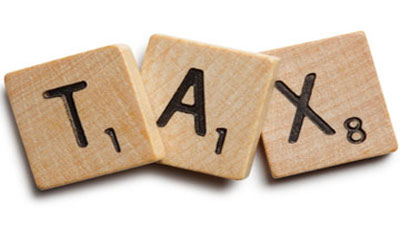Safe-deposit-box: the preferred method of tax dodgers

Italians looking to conceal assets turn to safe-deposit boxes.
Italians who want to stash their riches out of reach of tax collectors might familiarize themselves with a restaurant on the Via della Posta in the Swiss town of Locarno, about 6 miles from the Italian border. One floor above Ristorante Pasta e Ravioli is the office of safe-deposit-box company Gestisafe, whose website boasts that it can offer “a service comparable to a bank but free from the stringent rules governing the sector.”
Gestisafe, founded in 2009, and its growing number of rivals aren’t subject to the rules of Switzerland’s financial regulator, which require banks to report “suspicious financial activity” to MROS, the Swiss Money Laundering Reporting Office. MROS says “that may involve illegal money or criminal organizations” or “terrorist financing.”
With American and European regulators pressuring Swiss banks to come clean about their foreign clients’ assets, independently operated safe-deposit boxes are popping up across Switzerland, replacing bank accounts as a preferred method of hiding assets. That’s especially prevalent in Ticino, Switzerland’s sole Italian-speaking canton. “Maybe it’s not only Ticino, but it seems that it’s in Ticino where there is the greatest concern,” says Stiliano Ordolli, head of MROS.
While neighboring France and Germany have been pushing Switzerland to get tough on its banks, Italy has also become more aggressive recently, driven in part by its need to raise tax revenue. Under a law that went into effect in January, Italians have until Sept. 30 to declare their Swiss assets to Italian authorities and face reduced penalties. As Italians with undeclared assets stashed in Switzerland repatriate that money or look for other places to hide it, they’re hurting an already besieged banking industry in Ticino. The number of banks in the canton has dropped 30 percent—to 54 in 2013 from 77 in 2008, according to the Ticino Banking Association. With the remaining banks under pressure from Switzerland to report suspicious activity, safe-deposit-box companies are filling the void for those determined to defy Italy’s financial police, Guardia di Finanza.
The boom in safe-deposit-box companies has led two Ticinese politicians to demand an inquiry by the Swiss government into their growth and what their role in money laundering may be. Safe-deposit-box operators “are not considered financial intermediaries, and they don’t have an obligation to report to us,” says MROS chief Ordolli, who is awaiting a report from the Swiss Department of Finance on the extent of the safe-deposit industry in Ticino and throughout Switzerland.
Estimating the number of Swiss safe-deposit companies is tricky. There may be 30 in Ticino, says Paolo Bernasconi, a tax lawyer in Lugano, Ticino’s banking hub and biggest city. A November 2014 report from local newspaper La Regione estimated there are about 50,000 safe-deposit boxes in the canton, and that at least 10 companies had sprung up in the previous 18 months.
The problem, says Claudio Abate, a lawyer and one of the Swiss parliamentarians pushing for the federal government to act, is that safe-deposit companies aren’t breaking the law, just exploiting a regulatory loophole. “We’re not looking for the grandmothers who’ve put away 10,000 francs in a safety-deposit box for safekeeping,” says Abate. “But those that don’t respect the rules must be pursued.”
If the proliferation of safe-deposit companies is found to be a national problem, the Swiss government will have to address it, Abate says. National lawmakers could also kick it back to the local government of Ticino if they don’t see it as a countrywide headache. That could put it in the hands of Ticino’s chief prosecutor, John Noseda, who, according to Abate, has stated publicly that unregulated safe-deposit companies are a problem.
The high prices that Gestisafe and others charge have yet to put clients off. A 1-foot-square safe-deposit box that’s 19 inches deep costs 840 francs ($860) a year. The biggest box on offer, more than 5 feet tall, 3 feet wide, and 20 inches deep, goes for 5,900 francs. Across the street from Gestisafe sits Swiss Family Safe, which charges as much as 3,500 francs a year for a range of box sizes. Gestisafe declined to answer questions. Swiss Family’s managing director, Alfredo Müller, didn’t return phone calls.
The rise of safe-deposit boxes is a boon for jewelers along Lugano’s Via Nassa, home to Cartier, Bulgari, and Bucherer boutiques, as people race to convert cash into assets they can lock away. The luxury retailers have “had a wonderful year,” says Bernasconi, the Lugano tax lawyer. “It’s been a golden year on the Via Nassa.”
The bottom line: As Italy cracks down on tax dodgers, Swiss safe-deposit boxes become the preferred method for hiding assets.
Source: Bloomberg – Italy’s Tax Dodgers Hide in a Swiss Loophole





























